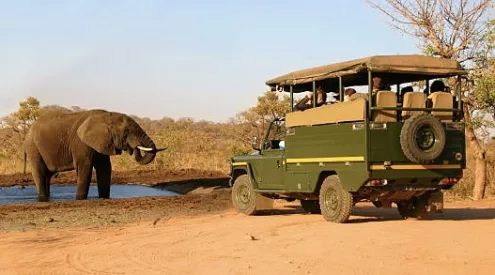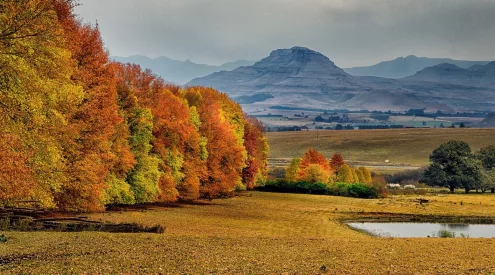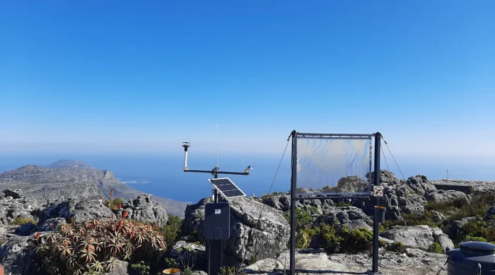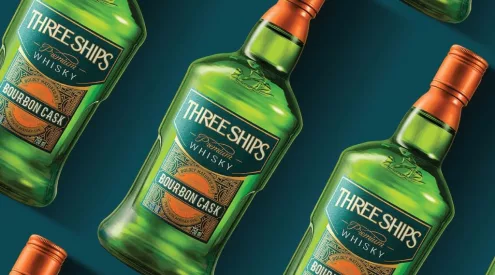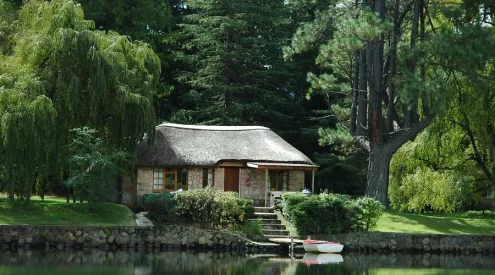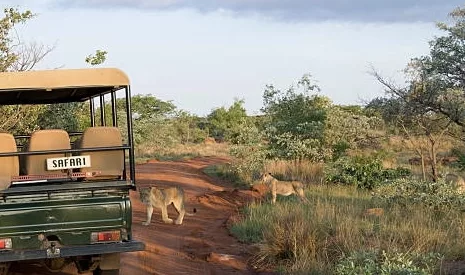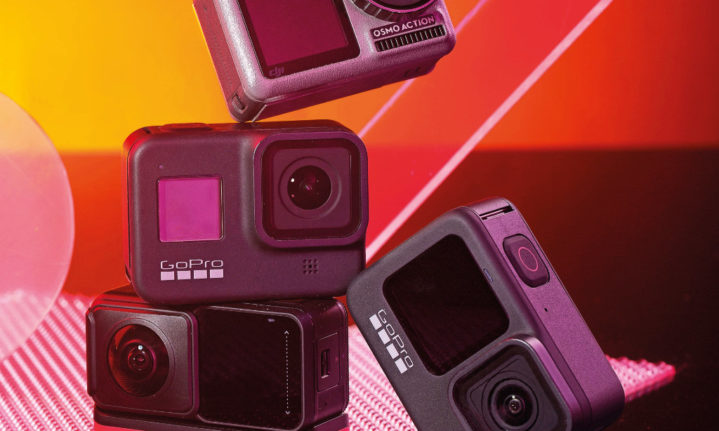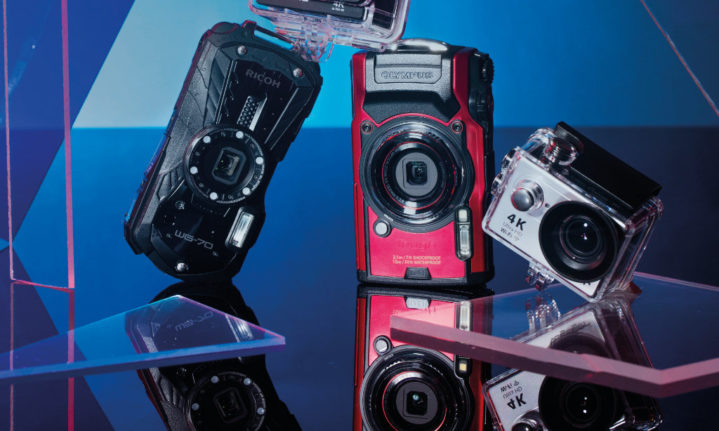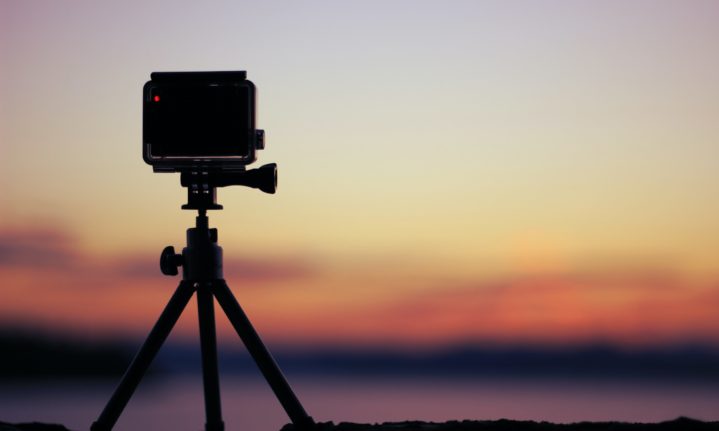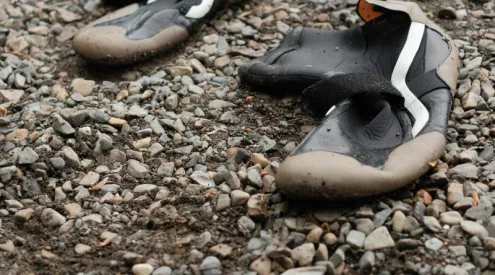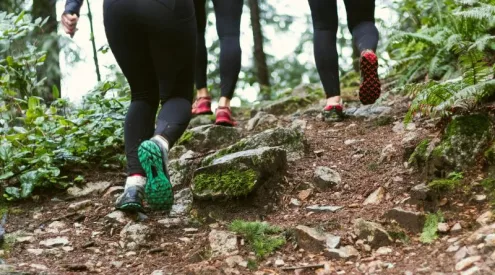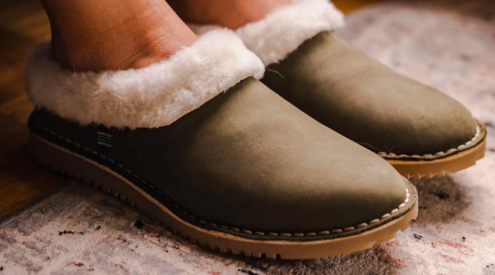It’s been almost 20 years since GoPro revolutionised the industry with their tiny cameras that could withstand almost anything. They’re still market leaders, says Gear Editor Matthew Sterne, but there are a lot more brands deserving a slice of the action.

The rise of GoPro
GoPro was founded in 2002 by Nick Woodman – a surfer who wanted to capture high-quality action videos of himself and his friends on a trip in Australia. A 35mm camera, a wrist strap made from old wetsuits and plastic scraps started it all but it was the Hero3 – with its ability to film in 4K – which skyrocketed the brand in 2012. GoPro’s popularity is one of its greatest strengths in that accessories and parts are always easy to find, whereas it can be tricky to find similar items for other brands.
1 | Insta360 One R Twin Edition
R10 999
ormsdirect.co.za
Video: 5.7K at 30fps, 4K at 60fps
Stills resolution: 12MP
Waterproof: 5m
Released at the start of 2020, this is an enticing camera as it can be used both as an action and a 360º camera, with the different modulars snapping together like Lego bricks. One turns it into a straight 4K action camera, the other gives it 360°-shooting capability at 5.7K, a feature which real estate agents have embraced during the pandemic when buyers could not view homes. One neat feature: the core module can be attached in either direction, allowing you to place the screen at the back of the camera or facing forward (useful for selfie mode). There’s also the option of buying the one-inch Leica lens (R7 199), which blows every other action cam out of the water in terms of sensors – it’s three times larger than that of the Hero9, which allows it to work better in low-light conditions, creating less noise and greater detail.
2 | GoPro Hero8 Black Action Camera
R7 195
ormsdirect.co.za
Video: 4K at 60fps
Stills resolution: 12MP
Waterproof: 10m
The Hero8 may lack a couple of features you get on its successor (namely, a front-facing screen, 5K video and 20MP stills) but it’s still a fantastic all-rounder that’s compatible with GoPro’s accessories. Its 4K video is just as impressive as the Hero9’s, while the HyperSmooth stabilisation is almost identical, too. It’s also the smaller and lighter option. For many people, it’ll be the best choice, once you’ve factored in value.
3 | DJI Osmo Action
R4 595
ormsdirect.co.za
Video: 4K at 60fps, with 8x slow motion
Stills resolution: 12MP
Waterproof: 11m
DJI is known for producing some of the best drones around but turned its attention to the action camera market in 2019 with the arrival of the Osmo Action. It shook things up with its introduction of a front-facing LCD screen (as well as one on the back), which was particularly appealing to vloggers. Since then, however, GoPro has released two models with front-facing screens so this does feel slightly outdated. Nevertheless, it has impressive features: an f/2.8 lens that performs well in low-light, decent stabilisation, waterproof out the box, 4K video at 60fps and in-camera slow-motion mode. The image stab- ilisation, however, only works with a heavy crop and there’s no support for GPS. A cool feature is that the Osmo uses the same sensor as the DJI Mavic Air, and supports the same frame rates and video options, which is handy if you’re mixing footage from the air and ground.
4 | GoPro Hero9 Black Action Camera
R10 395
ormsdirect.co.za
Video: 5K at 30fps, 4K at 60fps, with 8x slow motion
Stills resolution: 20MP
Waterproof: 10m
The current big kahuna of action cameras, the Hero9 is better than its GoPro predecessor in many ways. It upped the resolution to 5K for video, increased photos to 20MP (that’s quite a jump from 12MP) and added the ability to capture 14.7MP stills from video, too. That’s high enough resolution to use in print, not just on the web. Add astounding gimbal-esque image stabilisation, front and back display screens, improved time-lapses and a longer battery life (30% more than the Hero8) and you see why it’s consider- ed the best. It also addressed one major flaw in the Hero8’s design: the lens cover is replaceable (should you scratch it).
Things to consider when buying an action camera
Video Resolution
A resolution of 1 080p used to be the standard resolution but these days everyone is looking for a minimum of 4K.
Video Frame Rate
The frequency at which the consecutive images (frames) are displayed. In general, 30–60 frames per second (fps) will suit most users. To film in slow motion, you’ll want a camera that has 60fps.
Proofing
Most action cams will be waterproof to around three metres but they should also be shockproof to protect it from drops.
Battery Life
Because these little cameras are worked hard, they usually offer one to three hours of continuous use before they need to be recharged.
Display
Being able to see what your camera sees is vital. Many action cameras now offer LCD screens, the better ones have touchscreens that allow you to change settings, add filters, edit footage and even upload to the internet.
Image Stabilisation
Due to the nature of how action cameras are used, image stabilisation makes a huge difference. The better models take away much of the blur and shake.
Accessories
Helmet, handlebar and even wrist mounts are popular. Before you commit to a specific camera, check that any accessories you may need in the future are not only affordable, but also easily available.

1 | Ricoh WG-70
R5 565
cameraworld.co.za
Video: 1 080p at 30fps
Stills resolution: 16MP
Waterproof: 14m
If you’re looking for a budget version of the Olympus Tough TG-6, this is it. Both feature underwater modes (less refined in the Ricoh), image stabilisation, a manual focus mode and 1cm focus distance – all handy underwater – and the Ricoh has a slight resolution advantage. Sadly, its narrower lens and aperture lets in less light; it doesn’t have the Olympus’ environmental sensors and its video resolution lets it down, so you may be better off with a DJI Osmo Action for a grand less, or a GoPro Hero8 for a 1.5k more.
– Anton Crone
2 | Volkano Extreme Series 4K UHD Action Camera
R1 099
outdoorwarehouse.co.za
Video: 4K at 30fps, 1 080P at 60fps
Stills resolution: 8MP
Waterproof: 30m (with casing)
There’s not a whole lot to choose between in the battle of the entry-level action cameras. The Volkano and the Voyager look eerily similar to each other and their specs are pretty similar, too. The 2” LCD screens, mounts (for handlebars and hel- mets), waterproofing, 170° wide-angle lens and battery life are all fairly equal. The notable difference is in the megapixels of their images – the Volkano has 8MP whereas the Voyager has 12MP. The Volkano does, however, outperform its counterpart in some features: it has a 4x digital zoom, slow-motion and time-lapse functions and can capture 60fps at 1 080P.
3 | Olympus Tough TG-6
R8 995
ormsdirect.co.za
Video: 4K at 30fps
Stills resolution: 12MP
Waterproof: 15m
It may look out of place in this group, but there’s a lot to be said for this rock-solid shooter, especially if you enjoy underwater photography. Fifteen metres is a respectable depth for snorkellers, and a host of features make it an attractive tool for capturing marine life. Five underwater modes mean you can match the situation you’re in, from marinescapes to macro shots. The 1 cm focusing distance gets you super close to capture intricate images of sea anemones and nudibranchs, and the lens’ ability to go to f/2.0 at its widest means it lets in almost twice as much light as its closest rivals, a boon below and above water. A standout feature of the TG-6 is its ability to capture data from its environmental sensors including a GPS, altimeter/depth gauge, compass, accelerometer and thermometer. These can be attached to photos and are a handy way to find and return to remarkable locations. A number of conversion lenses and a ring flash adapter can be attached for more serious underwater photography. Its major failing, however, is a 12mp sensor which renders its image quality no better than a smartphone.
– Anton Crone
4 | Voyager Explorer 4K UHD Action Camera
R1 499
game.co.za
Video: 4K at 30fps, 720 at 60fps
Stills resolution: 12MP
Waterproof: 30m (with casing)
The Voyager Explorer is the more attractive option over the Volkano when it comes to the quality of the images. If you’ll be using your action cam more for stills than video – and would prefer an affordable option – then the Voyager is your best bet. There’s also the potential to capture aerial footage as the Voyager Hurricane Drone has a holder for the Voyager Explorer Action Camera. Neither of these entry-level cameras link up with Wi-Fi well and the stabilisation isn’t top quality so I wouldn’t recomend either for hardcore athletes. They’re aimed more at kids and hobbyists.


